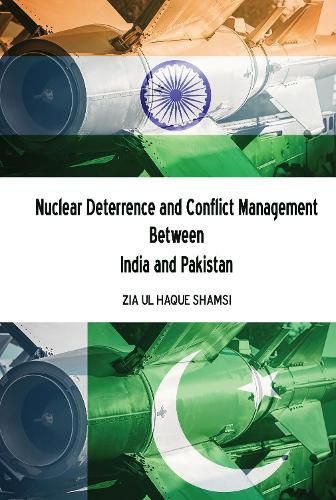Readings Newsletter
Become a Readings Member to make your shopping experience even easier.
Sign in or sign up for free!
You’re not far away from qualifying for FREE standard shipping within Australia
You’ve qualified for FREE standard shipping within Australia
The cart is loading…






This title is printed to order. This book may have been self-published. If so, we cannot guarantee the quality of the content. In the main most books will have gone through the editing process however some may not. We therefore suggest that you be aware of this before ordering this book. If in doubt check either the author or publisher’s details as we are unable to accept any returns unless they are faulty. Please contact us if you have any questions.
The India-Pakistan relationship is complex and choreographed with wars, protracted conflicts and active disputes. Although the presence of nuclear weapons has decreased the probability of an all-out conventional war, the frequency of minor conflicts and crises have increased manifold. India considers nuclear weapons a deterrent against nuclear strikes, whereas Pakistan assumes that these would deter a nuclear as well as a conventional war. The central argument of this book is that another military engagement between India and Pakistan, similar to one in February 2019, exists with varying degrees of probability, thus challenging the efficacy of nuclear deterrence. Until the probabilities of military engagements are minimized, the possibilities of peace and stability in the region would remain elusive. Therefore, the situation asks for scholarly contribution in developing a new paradigm wherein the two nuclear neighbors are made to recognize the need to resolve their disputes instead of just managing them, to avoid recurrence of violent conflicts that can lead to a catastrophic nuclear exchange, no matter how limited it is.
$9.00 standard shipping within Australia
FREE standard shipping within Australia for orders over $100.00
Express & International shipping calculated at checkout
This title is printed to order. This book may have been self-published. If so, we cannot guarantee the quality of the content. In the main most books will have gone through the editing process however some may not. We therefore suggest that you be aware of this before ordering this book. If in doubt check either the author or publisher’s details as we are unable to accept any returns unless they are faulty. Please contact us if you have any questions.
The India-Pakistan relationship is complex and choreographed with wars, protracted conflicts and active disputes. Although the presence of nuclear weapons has decreased the probability of an all-out conventional war, the frequency of minor conflicts and crises have increased manifold. India considers nuclear weapons a deterrent against nuclear strikes, whereas Pakistan assumes that these would deter a nuclear as well as a conventional war. The central argument of this book is that another military engagement between India and Pakistan, similar to one in February 2019, exists with varying degrees of probability, thus challenging the efficacy of nuclear deterrence. Until the probabilities of military engagements are minimized, the possibilities of peace and stability in the region would remain elusive. Therefore, the situation asks for scholarly contribution in developing a new paradigm wherein the two nuclear neighbors are made to recognize the need to resolve their disputes instead of just managing them, to avoid recurrence of violent conflicts that can lead to a catastrophic nuclear exchange, no matter how limited it is.